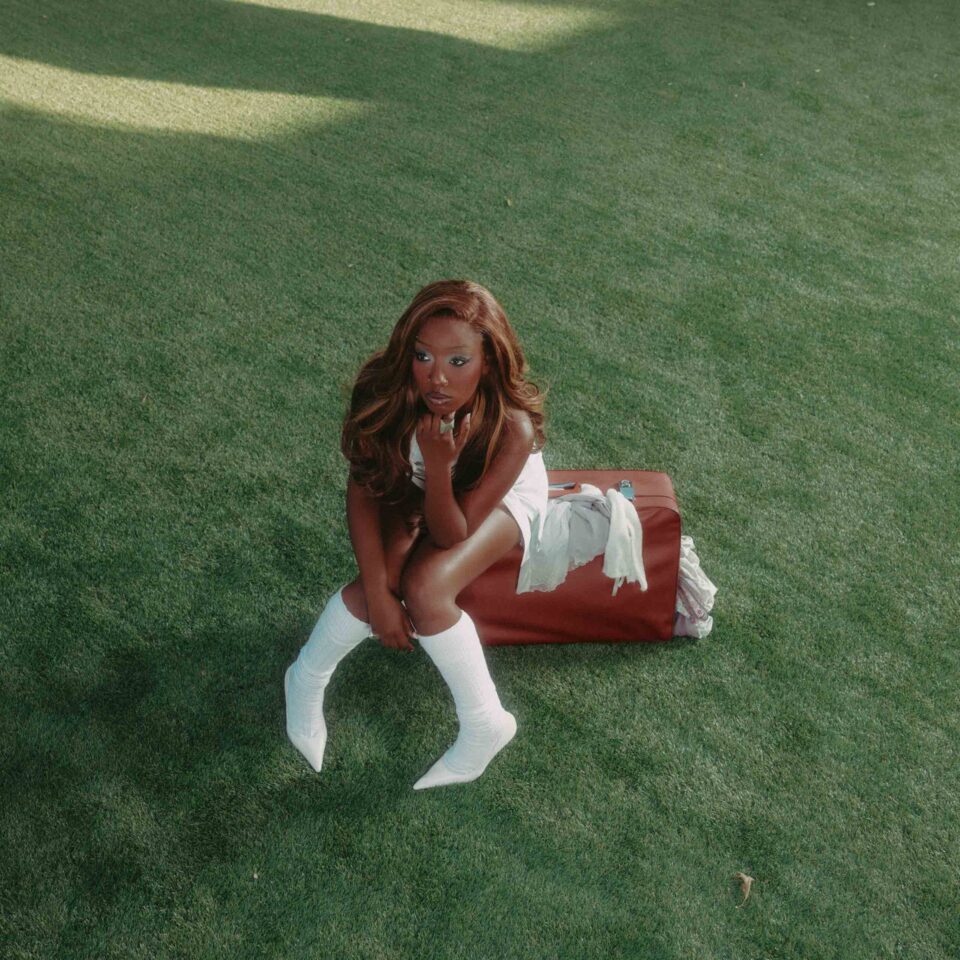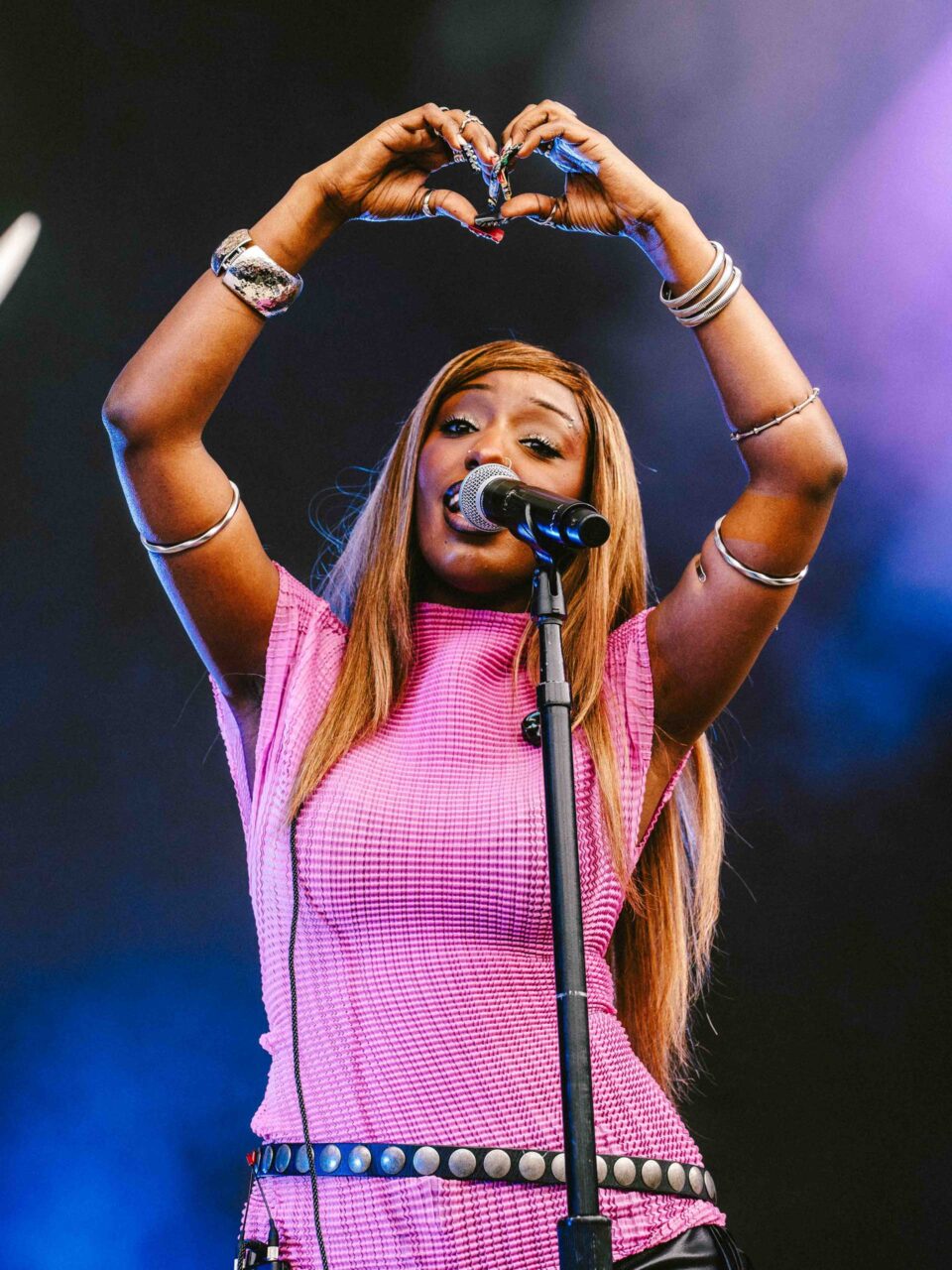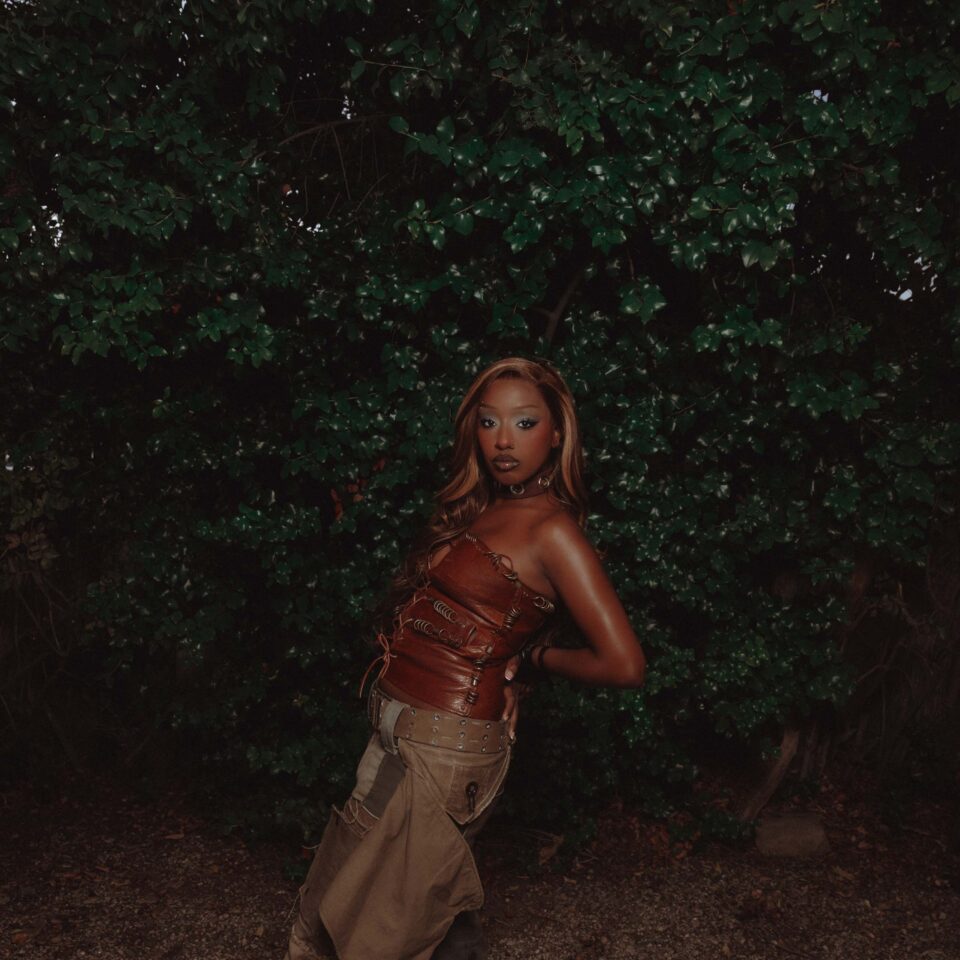BACKSTORY: A self-described “alt-pop misfit,” Top Dawg Entertainment’s newest signee has spent the past few years turning raw emotion into genre-blurring viral anthems
FROM: Born in Ethiopia, raised between Phoenix and Ethiopia, currently based in Los Angeles
YOU MIGHT KNOW HER FROM: Breakout hit “Bleach My Eyebrows,” or the recent cathartic collaboration “Beat a B!tch Up” with hip-hop superstar Doechii
NOW: Releasing her most self-assured project yet, But What the Hell Do I Know, while carving out space for Black women in alternative music
Some life lessons hurt. For Alemeda, they often come with emotional bruises, the kind you earn from life “stomping you out,” as she puts it. The alt-pop songwriter’s new EP But What the Hell Do I Know captures that moment of humility and redefinition—an artist learning, unlearning, and finally allowing herself a moment of grace. “Everyone’s the product of the environment they grew up in, but you can’t keep using that as an excuse,” she says. “I need to become who I want to become, both as a person and an artist.” The EP’s title, while wry and relatable, isn’t defeatist. Rather, it’s a defiant declaration of growth. “My adulthood is dedicated to being what I didn’t get to be in my childhood,” she admits. The project’s tone swings between introspection and catharsis, tracing her emotional evolution from survival to self-awareness as she progresses through her twenties. “I’m having such intense realizations, connecting shit between my childhood and my adulthood and trying to just be better.”
That self-work forms the backbone of But What the Hell Do I Know, an EP that’s both diaristic and diabolically eclectic. She lays herself bare on songs like “Happy with You” (“It’s about realizing why I haven’t felt the type of love I want to feel, and understanding that some of that is my fault”) and laughs at herself on others. Take the swagger-drenched “1-800-F**K-YOU”: “I didn’t have any cocky songs, so I literally came into the studio to make one,” she recalls. One of the EP’s most electric moments, “Beat a B!tch Up,” finds Alemeda trading verses with longtime pal Doechii. “I was out with her one night four years ago,” she recalls. “I was like, ‘You know what? If someone came up to you right now, I’d fight them.’” Alemeda emphasizes that it’s a girl-power anthem in disguise. “My biggest fear was people thinking it was about, ‘Oh, I love a man so much I’m going to fight girls for him.’ If you know me, that’s the last thing I’d do.”

As she mentions, Alemeda’s connection with Doechii long predates the song. “Besides SZA, she’s the only other female artist on Top Dawg Entertainment,” she says. “Doechii’s so confident and it inspires me so much. She helped me overcome imposter syndrome.” That mentorship continued into the studio, where she gave copious notes on the collaboration. “She told me to do the crazy vocal yell at the end and I genuinely thought I couldn’t do it. She sent me a voice note saying, ‘Sing it like this,’ and it helped me really bring the song to life.”
While But What the Hell Do I Know explores internal growth, it also challenges external expectations—particularly around genre and identity. “I hate genre boxes,” Alemeda says. “As a Black artist, you just get put into the R&B category almost by default.” It’s a source of frustration, given her passion for making rock-infused pop music. “It makes me overly conscious of what kind of music I decide to make, because I know that if I make one false move, I’ll be labelled as an R&B artist. And there’s nothing wrong with that, but I’m not.”
“As a Black artist, you just get put into the R&B category almost by default... If I make one false move, I’ll be labelled as an R&B artist. And there’s nothing wrong with that, but I’m not.”

Alemeda at All Things Go NY 2025 / photo by Kimberley Ross
Recently touring with British songwriter Rachel Chinouriri gave Alemeda a new lens on representation and the confidence that her music can speak for itself. “Her fan base, you can tell they truly just love her for her music,” she says. “They’re not there because she’s a Black woman. It’s older white people in their forties and 12-year-old Black girls who are so in love with her. It was such a different variety of people.” Her connection with Chinouriri led to them recording a collaboration for the EP titled “Chameleon” which finds them exploring an unusually mellow sonic palette—a state of affairs Alemeda intends to remedy in the future. “I want to make a rock song with her. We’re both in the alternative rock, pop-punk world, so I’d love to make something that leans even further into that.”
While Alemeda gleefully makes music without externally imposed genre barriers, her identity shapes her desire to be as vulnerable as possible as a songwriter and role model. “Coming from the background I come from and being an East African Black woman who makes music, I feel almost like an obligation to be personal,” she says. “I went through all these things, but I still was able to get to where I’m at.” As an inherently shy person, she’s aware that vulnerability carries a different weight for her than it might for others. “If it were up to me, I’d make 10 versions of ‘1-800-F**K YOU,’” she laughs, calling back to the EP’s irreverent party anthem. “But I think I had a realization once I turned 24 or 25 that if I want people to really feel what I feel and know what I went through and really be inspired by me, they have to know that it wasn’t a little dance to the top. It was really hard.”

Alemeda at All Things Go NY 2025 / photo by Kimberly Ross
“If I want people to really feel what I feel and know what I went through and really be inspired by me, they have to know that it wasn’t a little dance to the top. It was really hard.”
While untangling genre and identity is a continuing process, Alemeda’s approach to her craft is intentionally simple. “It always starts with a guitar loop,” she says. “I just found out that’s kind of different; I thought everybody did that.” Noting another quirk, she adds: “I’ll literally be like, ‘Do not play drums out loud.’ I feel like drums dictate so much: they dictate how fast the song is going to be, the genre of the song.” Instead, she prefers to create the world and then add the drums later. It’s a method that mirrors her broader artistic philosophy: intuition first, definition later. “I think [this EP] gives me the confidence to know what I’m capable of,” she says—a boost she’ll carry into the making of a longer body of work. “With everything I’ve learned and the live performances I’ve been doing this past year, I feel like everything offers some type of growth to my music. That’s what I’m excited for.”
When it comes to the future, however, one goal shines brighter than all others: a collaboration with Paramore’s Hayley Williams. “If I could even just get some kind of acknowledgement from her, I would die happy,” she says. With Alemeda’s growing profile and original perspective, anything is possible. FL








